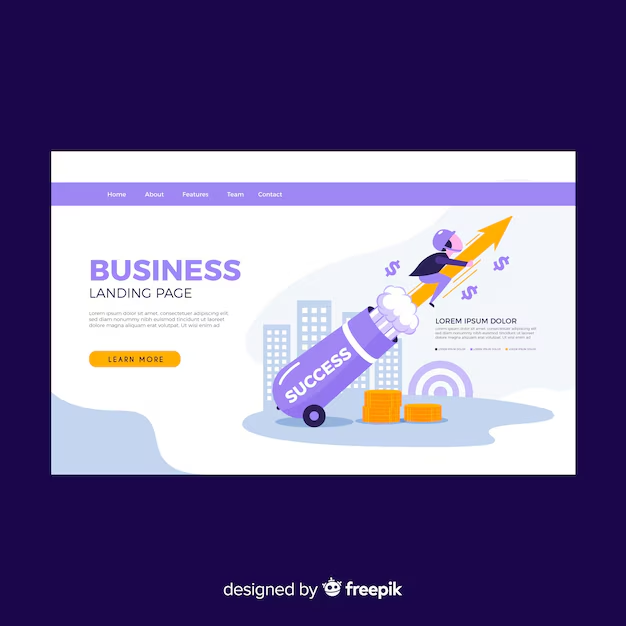In today’s competitive marketplace, organizations are constantly seeking innovative ways to streamline processes and promote productivity. The convergence of software platforms plays a crucial role in achieving organizational goals, leading to a more cohesive work environment. By focusing on sophisticated technological partnerships, businesses can unlock their full potential and drive sustainable growth.
Among the various solutions available, a well-crafted connection between time tracking and financial management systems can significantly simplify daily tasks. This not only facilitates enhanced collaboration among teams but also ensures accurate tracking of resources and budgets. The outcome is a more unified approach to project management, ultimately resulting in improved outcomes.
The journey to operational excellence involves leveraging tools that provide reliable insights and foster transparency. A robust connection between key platforms can empower decision-makers with the information needed to strategize effectively. As a result, organizations can navigate complexities with confidence and maintain a competitive edge.
Understanding Replicon’s QuickBooks Integration
This section explores the significance of seamless connectivity between time tracking solutions and financial management software. By forging a bond between these two essential tools, businesses can streamline their operations and gain valuable insights into their financial health.
The integration allows for effortless data transfer, minimizing the need for manual input. This functionality not only saves time but also reduces errors that could arise from double entries. Organizations benefit from an automated flow of information, ensuring that financial records are always accurate and up-to-date.
Moreover, such compatibility empowers users to efficiently manage their payroll and billing processes. By synthesizing time data with financial metrics, companies can make informed decisions on resource allocation and project management. Ultimately, this synergy enhances productivity and fosters a more organized approach to business operations.
Key Benefits of Improved Integration
Establishing a seamless connection between systems can significantly transform operational workflows. The advantages of streamlined synchronization lead to enhanced performance across various aspects of the business. Organizations can expect a range of positive outcomes from this innovative approach.
- Simplified Data Management: Automating data transfers reduces manual entry errors and minimizes time spent on administrative tasks.
- Real-Time Insights: Accessing up-to-date information enables better decision-making, supporting timely strategic initiatives.
- Cost Savings: Reducing redundancy in processes can lead to significant cost-efficiencies, ultimately supporting the budget.
- Improved Collaboration: Enhanced communication between departments fosters teamwork and aligns efforts to reach common goals.
- User-Friendly Experience: Intuitive interfaces and straightforward processes lead to quicker adoption, minimizing the learning curve for staff.
Through these benefits, organizations can cultivate a more agile environment, allowing them to adapt quickly to changes and drive growth effectively.
Streamlining Time Tracking Processes
Efficiently managing time allocation is crucial for optimizing productivity and ensuring that resources are utilized effectively. By developing a structured approach to time monitoring, organizations can identify areas for improvement, reduce administrative burdens, and foster accountability among team members. This not only simplifies project management but also enhances overall operational flow.
Eliminating Manual Entry
One of the primary challenges in time tracking is the reliance on manual data input. Manual entry can lead to errors, inconsistencies, and increased time spent on administrative tasks. Implementing automated solutions minimizes these risks by capturing and processing time data in real-time, allowing for more accurate reporting and analysis.
Centralized Data Management
Utilizing a centralized platform for time tracking allows teams to access and update information easily. This approach facilitates collaboration, as team members can view project statuses and individual contributions in one place. A unified system streamlines communication and reduces the likelihood of discrepancies, ultimately promoting a more cohesive work environment.
Enhancing Financial Management Efficiency
Effective financial oversight is crucial for modern organizations aiming to streamline operations and maximize profitability. Accurate tracking, timely reporting, and seamless integration of various financial tools can significantly elevate an organization’s control over its financial resources. By optimizing these processes, companies can foster growth and sustain competitive advantage.
Key aspects to consider when aiming for better financial oversight include:
- Automated Data Entry: Reducing manual inputs minimizes errors and saves time, allowing teams to focus on critical tasks.
- Real-Time Reporting: Quick access to up-to-date financial data aids in informed decision-making and strategic planning.
- Budget Management: Streamlining budget creation and tracking helps maintain financial discipline and prevents overspending.
- Improved Visibility: Consolidated views of financial performance across departments enhance transparency and accountability.
- Streamlined Invoicing: Automation of invoicing processes leads to faster payments and improved cash flow.
By focusing on these elements, businesses can create a more cohesive financial management structure that drives growth and supports long-term objectives. The implementation of innovative tools further facilitates these changes, ensuring that organizations can adapt to shifting markets with agility and precision.
In summary, prioritizing financial management by utilizing advanced technologies and methodologies will position companies for future success while optimizing resource allocation and financial performance.
Customizing Your Workflow with Replicon
Streamlining your processes can significantly impact productivity and overall performance. Adapting your operational methods to better fit the needs of your team is essential for any organization seeking to thrive in a competitive environment. This section delves into how tailored approaches can transform your daily tasks into a more cohesive and efficient system.
Key benefits of personalizing your workflow include:
- Increased visibility of project progress
- Improved time tracking and resource allocation
- Enhanced team collaboration and communication
- Greater adaptability to changing project requirements
To effectively customize your workflow, consider implementing the following strategies:
- Define Clear Objectives: Establish specific goals for your projects to ensure everyone is aligned and focused.
- Select Relevant Tools: Choose software and applications that cater to your team’s unique operational style and requirements.
- Automate Repetitive Tasks: Utilize automation features to reduce manual workload and free up team members for more strategic assignments.
- Solicit Feedback: Regularly gather input from team members to identify areas for improvement and make necessary adjustments.
Ultimately, creating a customized workflow helps foster a more productive environment where teams can work together seamlessly, adapt to challenges, and achieve their objectives more successfully.
Real-Time Data Insights for Decision Making
Access to instantaneous data plays a crucial role in shaping effective business strategies. Organizations equipped with immediate insights can react promptly to market trends, customer behaviors, and operational challenges. This capability allows for informed choices that drive growth and innovation.
Timely information not only boosts responsiveness but also enhances overall analysis. When decision-makers have the latest metrics at their fingertips, they can evaluate potential outcomes more accurately, leading to sound judgments. The ability to monitor performance metrics in real-time fosters a culture of agility and responsiveness, essential in today’s fast-paced business landscape.
Furthermore, leveraging up-to-date data facilitates collaboration across teams. When all departments share the same insights, alignment towards common objectives becomes seamless. This transparency encourages better communication, enabling everyone to work towards the same goals with clarity and focus.
Ultimately, the integration of real-time data into operational frameworks empowers organizations to stay competitive. By utilizing accurate analytics, companies can anticipate shifts in the marketplace and adapt their strategies accordingly, ensuring long-term success and sustainability.
Questions and answers: Replicon’s Improved QuickBooks Integration for Startups
How can time tracking software benefit small businesses in managing employee scheduling and payroll processes?
Time tracking software helps small businesses manage employee scheduling and the payroll process by providing accurate time tracking and attendance tracking features. With tools like a time clock and automatic time tracking, businesses can ensure they track employee hours accurately, reducing payroll errors. Many time tracking solutions also integrate with payroll software, simplifying payroll management for businesses of all sizes. This software solution supports effective time management, making it easy to use for HR teams and helping small businesses streamline their operations and compliance with workforce regulations.
What are some key features to look for in cloud-based time tracking software for project and task management?
Cloud-based time tracking software designed for project and task management should offer features like project time tracking, expense tracking, and reporting and analytics. These tools help businesses manage employee time effectively by tracking time entries and expenses associated with specific projects. Advanced features like GPS tracking and mobile app compatibility enable workforce management on the go, which is especially useful for remote teams. The software should also support integration capabilities with other project management tools, such as QuickBooks Online, allowing businesses to track project progress and manage payroll seamlessly.
Why is employee time tracking essential for medium-sized businesses, and how does it support resource management?
Employee time tracking is essential for medium-sized businesses as it provides accurate time tracking data that supports effective resource management and time management. By tracking employee hours and monitoring work hours, HR teams can ensure employees are efficiently allocated to projects and tasks. Features like time and attendance tracking and project tracking allow businesses to keep track of time spent on various assignments, making it easier for project managers to manage resources. Additionally, cloud-based time tracking software helps businesses maintain compliance with labor laws, enhancing workforce productivity and operational efficiency.
How do integration capabilities in time tracking and project management tools benefit businesses seeking comprehensive management solutions?
Integration capabilities in time tracking and project management tools enable businesses to create a seamless management solution that connects time tracking software with other essential tools like payroll software and accounting software. This connectivity simplifies processes such as payroll management, expense tracking, and project tracking. A management tool that integrates with popular platforms like QuickBooks Online and Time Doctor provides a range of features, such as accurate time tracking, expense logging, and real-time project management. Businesses can leverage these advanced features to improve accuracy, enhance resource management, and streamline overall operations, meeting diverse business needs effectively.
How does time and expense tracking benefit small and medium-sized businesses, and what features should they look for in a time tracking tool?
Time and expense tracking helps small and medium-sized businesses monitor project costs, manage employee hours, and optimize resource allocation. A time tracking tool designed for these businesses should offer features like timesheet software for accurate time logs, time off requests, and the ability to handle manual time entries when needed. For added flexibility, software for small businesses should include integration with project management software and HR software, enabling comprehensive tracking and better expense management for projects.
What pricing plans are typically offered by time tracking software for small businesses, and how do they impact affordability?
Time tracking software for small businesses often provides tiered pricing plans, which allow businesses to choose a package that suits their needs and budget. These pricing plans may range from basic options with essential time tracker features to more advanced plans that include project management platform integrations and additional management features. Some software solutions even offer a free trial to allow businesses to test the product before committing. This flexible pricing model helps small and medium-sized businesses access efficient time and expense tracking tools while keeping costs manageable.
Why is QuickBooks Time a popular choice for project management and time tracking, and what features make it suitable for businesses of all sizes?
QuickBooks Time is popular for its versatility and powerful time and expense tracking capabilities, which suit businesses of all sizes, from startups to large enterprises. It integrates well with project management software, allowing companies to manage projects alongside time tracking. Features such as mobile timesheet software, time off requests, and manual time entry options make it a comprehensive solution. QuickBooks Time also provides seamless integration with HR software, making it easier to track employee hours accurately and align payroll processes with project needs.
How do project management platforms with built-in time and expense tracking improve operational efficiency?
Project management platforms with built-in time and expense tracking improve operational efficiency by consolidating multiple functions into a single interface. These platforms offer timesheet software for easy tracking of time spent on tasks, tracking project expenses, and handling time off requests. By providing integrated management features and advanced reporting, the software allows businesses to make data-driven decisions. For small and medium-sized businesses, these platforms offer a cost-effective solution that streamlines project timelines and aligns resources with company goals, supporting efficient operations across departments.


